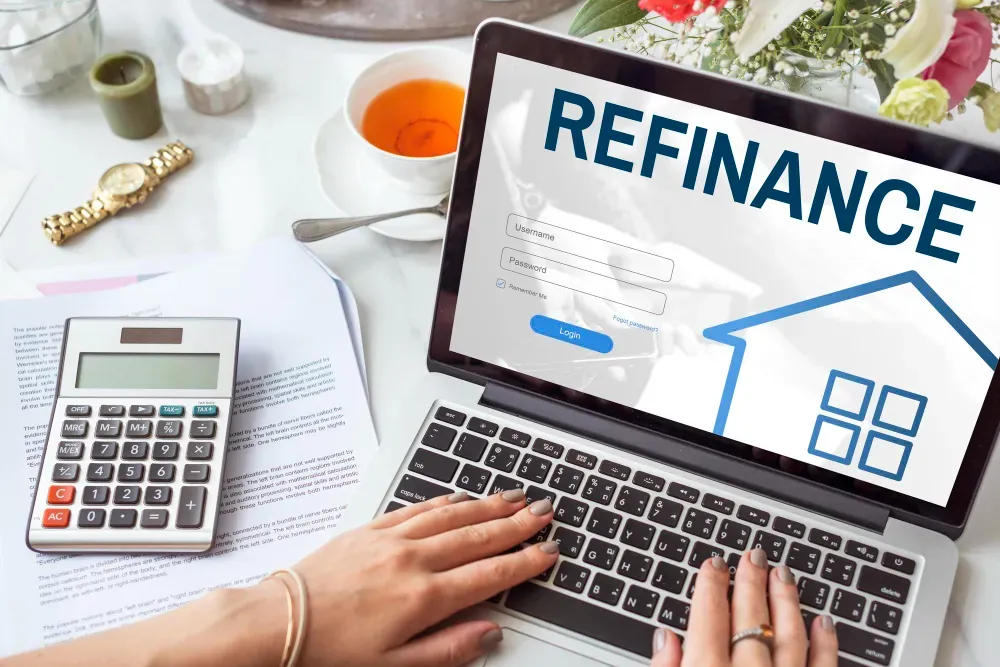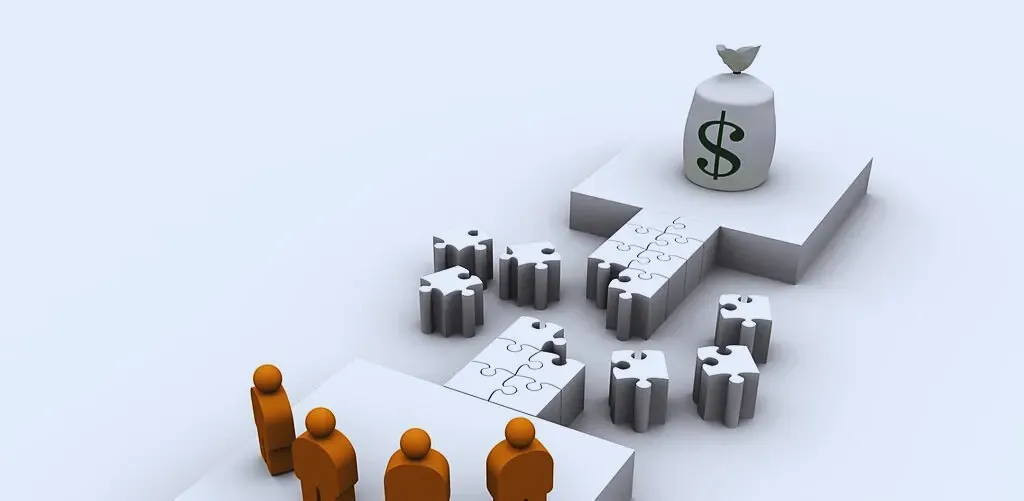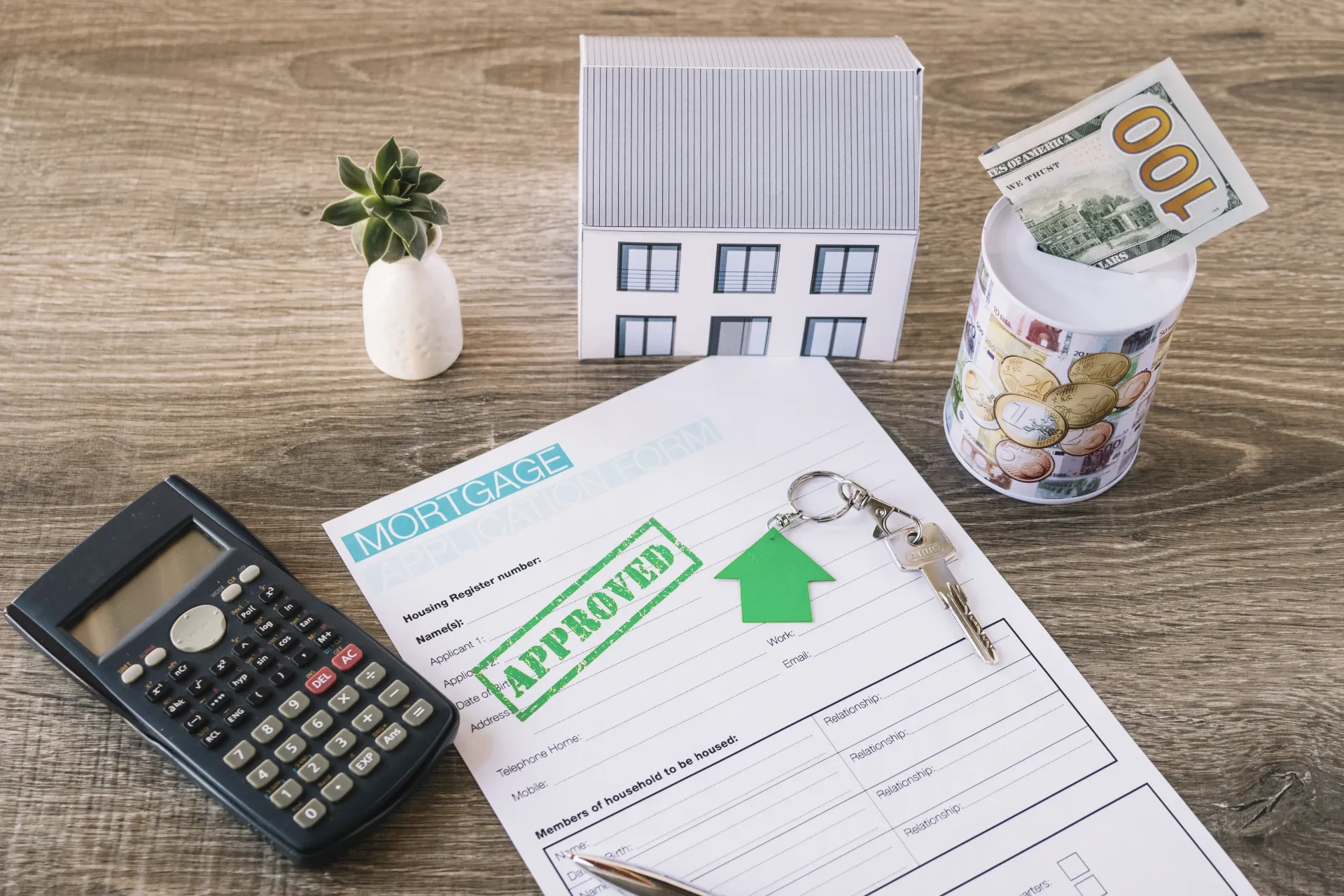Maximizing Your Home’s Value with Cash-Out Refinancing
Are you sitting on untapped equity in your home or investment property? That equity isn't just a number on paper – it's potential cash you could use to boost your property's value even higher. Smart real estate investors know that strategic cash-out refinancing, especially through flexible options like hard money loans, can transform a decent property into a highly profitable investment. Let's explore how you can tap into your home's equity to create even more wealth.

Understanding Cash-Out Refinancing Basics
Before diving into specific strategies, let's make sure we're on the same page about what cash-out refinancing actually means for real estate investors.
What is Cash-Out Refinancing?
Cash-out refinancing is when you replace your existing mortgage with a new, larger loan and pocket the difference in cash. For example, if your home is worth $400,000 and you owe $200,000 on your mortgage, you have $200,000 in equity. With cash-out refinancing, you might take out a new loan for $300,000, pay off the original $200,000 mortgage, and walk away with $100,000 in cash (minus closing costs).
This isn't "free money" – you're borrowing against your own property. But used wisely, this cash can help you make improvements that boost your property's value far beyond what you borrowed.
How Cash-Out Refinancing Differs from Traditional Refinancing
Traditional refinancing simply replaces your current mortgage with a new one, usually to get a better interest rate or change your loan terms. You don't get cash in hand.
Cash-out refinancing, on the other hand, puts actual money in your pocket. This makes it a powerful tool for investors looking to fund property improvements or expand their real estate portfolio.
The key differences include:
- Higher loan amount than your current mortgage
- Slightly higher interest rates than rate-and-term refinancing
- Access to immediate cash for investments or improvements
- Usually limited to 80% loan-to-value ratio with traditional lenders
Benefits for Real Estate Investors
Real estate investors can use cash-out refinancing in uniquely profitable ways:
- Fund renovations that increase property value
- Cover the down payment on additional investment properties
- Consolidate high-interest debt to improve cash flow
- Create or improve income-generating features
- Hold cash reserves for unexpected property emergencies
For investors with a clear plan, the benefits can far outweigh the costs. The secret is knowing exactly how you'll use that cash to generate returns.
Hard Money Loans: A Fast Alternative for Home Equity Access
Traditional cash-out refinancing isn't always the best fit for investors on tight timelines. That's where hard money loans enter the picture.
What Are Hard Money Loans?
Hard money loans are asset-based loans secured by real estate. Unlike conventional loans that focus heavily on your credit score and income, hard money lenders care most about your property's value and your equity in it.
These loans come from private investors or lending companies rather than banks. This means faster approval, flexible terms, and fewer bureaucratic hoops to jump through – all major advantages for real estate investors looking to move quickly.
Hard Money vs. Traditional Lenders
Let's break down how hard money loans stack up against traditional financing options:
Speed and Flexibility Advantages
With hard money loans, you can often access your cash in days rather than weeks or months. This speed can be crucial when:
- A time-sensitive renovation opportunity arises
- You need to act quickly on a new investment property
- Repair issues need immediate attention before they worsen
- You want to beat other investors to market opportunities
A traditional cash-out refinance might take 30-45 days to process. Hard money lenders can often deliver funds in 7-14 days – sometimes even faster.
Qualification Requirements
Traditional lenders focus heavily on:
- Your credit score (usually 620+ minimum)
- Debt-to-income ratio (typically under 43%)
- Steady employment and income history
- Cash reserves
- Property condition
Hard money lenders focus primarily on:
- The property's value (current and after repairs)
- Your equity position
- Your exit strategy
- Your experience as an investor (sometimes)
This makes hard money loans accessible to investors who might not qualify for traditional refinancing, including those with less-than-perfect credit or irregular income from self-employment.
The tradeoff? Higher interest rates, typically 8-15% versus 3-7% for conventional loans, and shorter terms, usually 1-3 years rather than 15-30 years.
Strategic Uses of Cash-Out Funds for Property Value Enhancement
Getting cash from your equity is just the first step. The real magic happens when you strategically invest that money back into your property.
High-ROI Home Improvement Projects
Not all home improvements deliver equal returns. The best projects for maximizing property value include:
- Kitchen upgrades – Even minor kitchen remodels can return 80% or more of their cost in added home value. Focus on modern appliances, fresh countertops, and updated cabinets.
- Bathroom renovations – Adding a bathroom or updating existing ones consistently ranks among the highest-ROI improvements. Simple updates like new fixtures, tile, and vanities can transform these spaces.
- Curb appeal enhancements – First impressions matter. Fresh landscaping, a new front door, updated siding, or a repaved driveway can dramatically increase a property's perceived value.
- Energy efficiency upgrades – New windows, added insulation, or modern HVAC systems not only attract energy-conscious buyers but also reduce ongoing costs.
- Basic maintenance and repairs – Sometimes the best "improvements" are simply fixing what's broken. Replacing a leaky roof, fixing foundation issues, or updating old electrical systems won't be sexy, but they remove major obstacles to selling at top dollar.
For investors, prioritize improvements that appeal to your target market. A luxury rental property may warrant high-end finishes, while a mid-market rental might need durable, attractive, but more budget-friendly updates.
Adding Income-Generating Features
The most powerful property improvements don't just increase value – they create new income streams.
Accessory Dwelling Units
Accessory Dwelling Units (ADUs) – also called in-law suites, granny flats, or garden apartments – can transform a single-family home into a multi-income property. Cash-out funds can cover the $50,000-$150,000 typical cost of adding an ADU, which might then generate $1,000-$2,000 in monthly rental income.
Popular ADU options include:
- Converted garages
- Basement apartments
- Detached backyard cottages
- Above-garage apartments
- Home additions
Before investing in an ADU, check local zoning laws and regulations. Many cities have recently relaxed ADU restrictions to address housing shortages, creating new opportunities for property owners.
Rental-Ready Upgrades
For dedicated rental properties, certain upgrades can justify higher rents and attract better tenants:
- In-unit laundry facilities
- Smart home features (keyless entry, programmable thermostats)
- Dedicated office spaces or work nooks
- Pet-friendly features like fenced yards or durable flooring
- Storage solutions including built-ins or garage organization systems
- Updated security features
The right improvements depend on your local rental market. In college towns, creating multiple bedrooms might maximize returns. In areas popular with young professionals, luxury bathroom upgrades might be the better investment.
Leveraging Hard Money Loans for Quick Home Renovations
When speed matters in property improvements, hard money loans offer distinct advantages.
Fast Funding for Time-Sensitive Projects
Some renovation opportunities can't wait for traditional financing. Examples include:
- Seasonal timing advantages – In cold-weather regions, exterior work like roofing or siding needs to happen during warm months. Missing this window could delay your project by up to a year.
- Contractor availability – When you find a great contractor with an unexpected opening in their schedule, fast funding helps you seize the opportunity.
- Material cost fluctuations – Building material prices can change rapidly. When prices drop temporarily, quick access to funds lets you purchase materials at optimal times.
- Competitive market positioning – In hot rental markets, being the first to offer updated units can command premium pricing.
Hard money lenders understand these pressures and typically offer streamlined processes designed for investors working against tight deadlines.
Bridging Financial Gaps with Hard Money
Hard money loans can serve as effective bridge financing when:
- You need to make improvements before a property will qualify for traditional financing
- You're planning to sell the property soon after renovations (fix-and-flip)
- You want to stabilize a property with tenants before refinancing into a long-term loan
- You're consolidating or paying off other debts to improve your financial profile
A common strategy involves using a hard money loan for quick renovations, then refinancing to a conventional loan once the property value has increased and the property generates stable rental income.
Real-Life Success Stories: Transforming Properties with Cash-Out Refinancing
Abstract concepts become clearer through real examples. Here's how actual investors have used cash-out refinancing to boost property values.
Before and After: Investment Property Transformations
Case Study 1: The Subdivision Specialist Mark owned a 4-bedroom, 2-bath single-family home on a large lot in a growing suburb. After researching local zoning changes that now permitted lot splitting, he used a $120,000 cash-out refinance through a hard money lender to:
- Subdivide his property
- Add utilities to the new lot
- Build a small 2-bedroom home on the new parcel
End result: His original property maintained 90% of its value despite the smaller lot, and he gained a second rental property generating $1,600 monthly. The entire process took just 6 months from funding to completion.
Case Study 2: The Conversion Expert Sarah purchased an outdated 3-bedroom ranch home for $280,000 in a neighborhood popular with young families. She used a $75,000 cash-out refinance to:
- Convert an oversized master bedroom into two bedrooms
- Add a second bathroom
- Update the kitchen with modern appliances and finishes
- Refresh landscaping for improved curb appeal
End result: Her now 4-bedroom, 2-bath home appraised at $425,000 after improvements – a value increase far exceeding her renovation costs. Monthly rental income increased from $1,950 to $2,800.
ROI Calculations from Actual Investors
Smart investors track their numbers carefully. Here's how some calculate their returns:
Traditional ROI Method:
- Total project cost: $75,000 (renovation) + $3,000 (loan costs) = $78,000
- Property value increase: $145,000
- ROI = $145,000 ÷ $78,000 = 186% ROI
Cash-on-Cash Return for Rentals:
- Cash invested: $78,000
- Annual increase in net rental income: $10,200
- Cash-on-cash return = $10,200 ÷ $78,000 = 13.1% annual return
Combined With Appreciation:
- First-year cash flow improvement: $10,200
- Property appreciation: $145,000
- Total first-year benefit: $155,200
- Return percentage: $155,200 ÷ $78,000 = 199%
While your specific numbers will vary, these examples demonstrate how strategic use of cash-out funds can generate substantial returns, especially when combined with careful market research and targeted improvements.
Navigating the Risks of Cash-Out Refinancing
Cash-out refinancing isn't without risks. Responsible investors understand and plan for potential downsides.
Understanding the Cost-Benefit Balance
Before proceeding with any cash-out refinance, consider these factors:
- New loan costs – Closing costs typically run 2-5% of the loan amount. Factor these into your overall project budget.
- Higher monthly payments – Your new loan will likely have higher payments due to the increased loan amount. Ensure your cash flow can handle this change.
- Interest rate changes – If rates have risen since your original mortgage, your new rate could be substantially higher.
- Extended loan term – Starting a new 30-year mortgage means more years of payments. Consider whether this aligns with your investment timeline.
- Market timing risks – Taking equity out near a market peak could leave you underwater if property values decline.
Calculate your break-even point – how long it will take for the benefits (increased rental income, appreciation, etc.) to outweigh the costs of refinancing.
When Hard Money Makes Sense (And When It Doesn't)
Hard money loans work best in specific scenarios:
Good Uses for Hard Money:
- Short-term renovation projects (6-18 months)
- Properties needing significant repairs to qualify for conventional financing
- Situations requiring fast closing
- Investors with exit strategies involving sale or refinance within 1-3 years
When to Avoid Hard Money:
- Long-term hold strategies without clear refinance plans
- Minimal planned improvements that won't significantly increase value
- Tight cash flow that can't absorb higher payments
- When conventional financing is readily available at much lower rates
Remember: hard money is a tool, not a solution for every situation. The higher costs make sense only when the speed and flexibility advantages translate to tangible benefits.
Step-by-Step Guide to Securing Your Cash-Out Refinance
Ready to move forward? Follow these steps to maximize your chances of success.
Preparing Your Property and Finances
- Determine your current equity position – Get a realistic property valuation through a broker's price opinion or comparative market analysis.
- Calculate your loan-to-value ratio – Most traditional lenders cap cash-out refinances at 80% LTV, while hard money lenders might go to 65-75% of current value or up to 65% of the after-repair value.
- Review your credit profile – While less critical for hard money, better credit means better terms. Get free copies of your credit reports and resolve any errors.
- Gather documentation – Prepare recent tax returns, bank statements, proof of insurance, and current mortgage statements.
- Create a detailed improvement plan – Document exactly how you'll use the funds, including contractor quotes and timelines.
- Develop exit strategy documentation – Hard money lenders want to see how you'll pay them back, whether through sale, refinance, or other means.
Finding the Right Hard Money Lender
Not all hard money lenders are created equal. Here's how to find a good match:
- Start with referrals – Ask other investors which lenders they've had positive experiences with.
- Research local options – Hard money lending often operates regionally, with lenders who understand your specific market.
- Compare terms carefully – Beyond interest rates, examine:
- Loan fees and points
- Prepayment penalties
- Term length options
- Extension possibilities
- Funding timeline guarantees
- Verify reputation – Check online reviews, Better Business Bureau ratings, and ask for references from past borrowers.
- Assess communication style – Does the lender respond quickly and clearly? Good communication predicts a smoother loan process.
- Evaluate their expertise in your property type – Some lenders specialize in residential, others in commercial or multi-family properties.
Once you've selected a lender, move quickly through their application process. Be responsive to document requests to maintain momentum.
Conclusion: Maximizing Value Through Strategic Financing
Cash-out refinancing, especially through flexible hard money options, gives real estate investors a powerful tool for unlocking property potential. By carefully selecting high-ROI improvements and understanding the cost-benefit balance, you can transform adequate properties into outstanding investments.
Remember these key principles:
- Start with a clear plan for using the funds
- Choose improvements that appeal to your target market
- Understand all costs involved in your new loan
- Have a definite exit strategy for hard money loans
- Monitor your timeline and budget closely during renovations
The most successful investors view cash-out refinancing not as a way to extract money from properties, but as a strategic method for injecting value into them. With thoughtful planning and disciplined execution, you can use these financing tools to build substantial real estate wealth over time.










